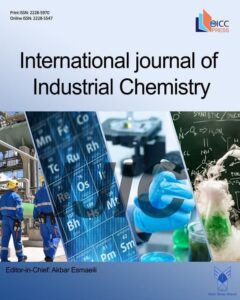Investigation of total petroleum hydrocarbons and indigenous bacteria under aerobic conditions to increase the efficiency of conventional treatment systems for oil-polluted soils
Authors
Abstract
Currently, the spread of soil oil pollution has had adverse effects on human and the environment due to using fossil fuels in industrial zones. This study was conducted to identify indigenous bacteria from the soil polluted with petroleum com-pounds in order to reduce polluting hydrocarbon compounds. Agar culture medium was used for the growth of bacteria in the saline liquid base medium and bacterial culture and to obtain a single colony in the solid medium. Then, the bacteria that could grow and multiply in the presence of these compounds were identified using the polymerase chain reaction (PCR) and recorded as new species. After testing the bacteria isolation and growth, purification and finally PCR and sequencing, it was found that the isolated indigenous bacteria belong to Peseudomons aeruginosa and Bacillus nakamurai species. According to the study results, the highest and lowest percentages of reduction in hydrocarbon pollutants were related to the sample of Pseudomonas aeruginosa (53.50%) and a combination of Bacillus nakamurai and Pseudomonas aeruginosa (21.48%). The study results showed the importance and efficiency of indigenous bacteria on reducing or removing hydrocarbon polluting compounds.


